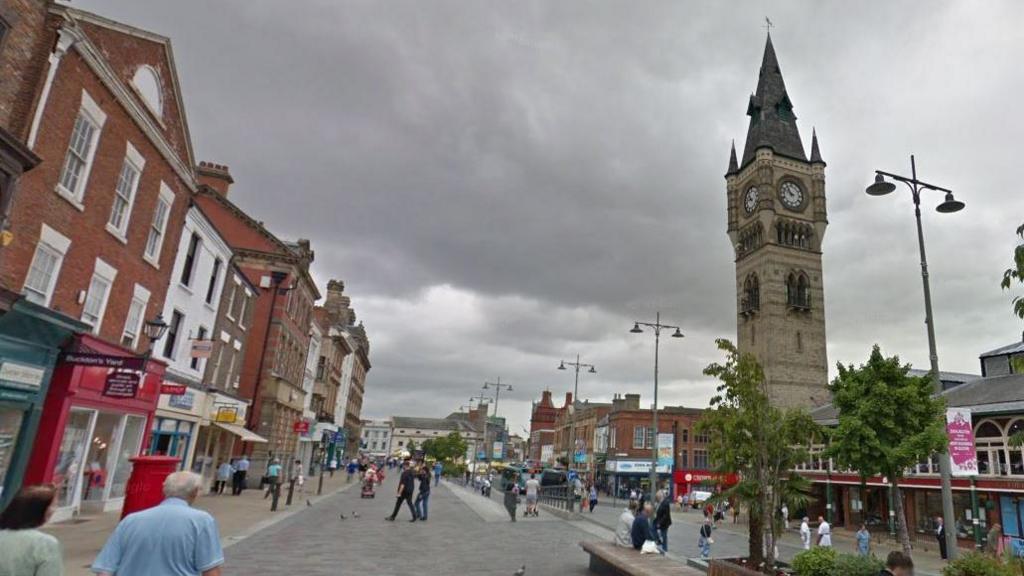Town centre anti-nuisance ban extended

The order applies to Darlington town centre
At a glance
An order banning anti-social drinking, begging and nuisance behaviour in Darlington town centre has been extended for three years
Anyone not complying with police or council staff demands could be fined up to £1,000
The order began in 2019 and has been hailed a success
- Published
A town centre ban on anti-social drinking, begging and nuisance behaviour has been extended.
Darlington Borough Council approved the three-year public space protection order (PSPO) with those breaching it facing fines of up to £1,000.
The town's first PSPO began in 2019 and councillors said it had been successful with staff trained to use it “as sensitively as possible”.
Repeat offenders would be helped in other ways than be hit with numerous fixed penalty notices, the council said.

Councillors Mike Renton And Jonathan Dulston said the scheme had so far been successful
The order covers anti-social drinking or failing to surrender alcohol in public places, begging and threatening behaviour, the Local Democracy Reporting Service said.
People who breach it face fines of up to £500 or £1,000, or fixed penalty notices (FPNs) of up to £100, if they refuse to stop one of the activities when asked by a council or police officer.
Mike Renton, cabinet member for stronger communities, said: "The town centre is the central hub of everything that’s great about this town.
“For that reason we need to take extra care and attention in order to keep it safe for everyone."
Councillor Stephen Harker said it was “crystal clear” FPNs were a last resort with a raft of organisations behind the scheme to help.
He said 81 FPNS had been issued for begging in 2021 and 2022 but a "significant proportion of those were issued to a single person”.
Council leader Jonathan Dulston said the council and support agencies were "looking at other courses of action" for repeat offenders, adding: "We’ve had particular individuals who are now progressing to a different route because it’s not appropriate to continue to issue FPN on top of FPN."